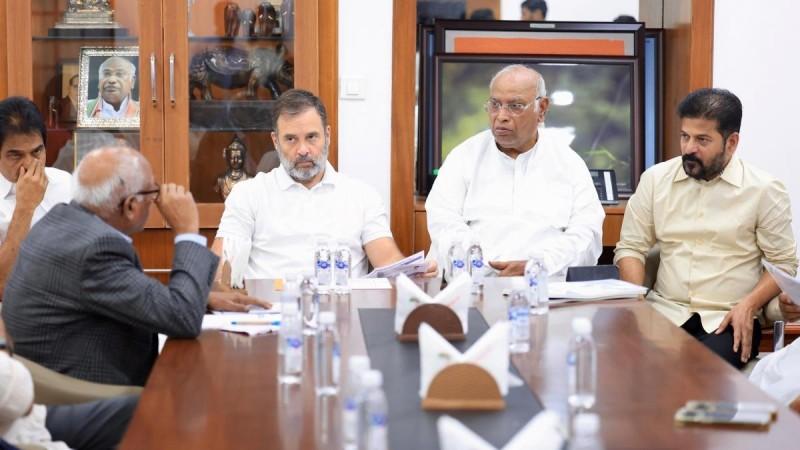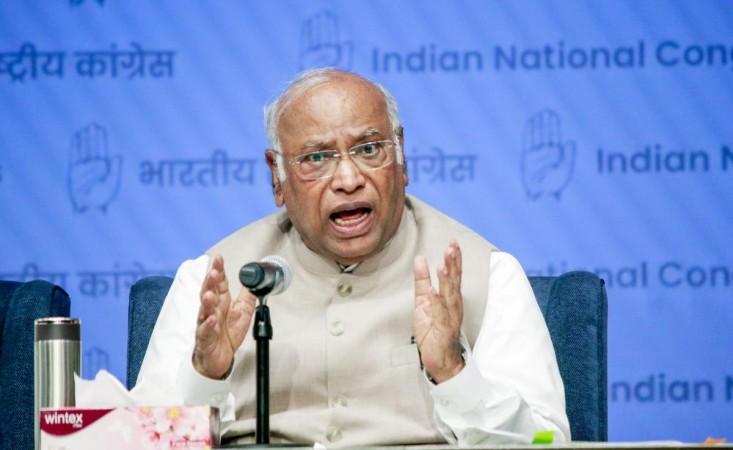
The Congress party has endorsed the Telangana model of social justice, aiming to implement it on a national scale. Telangana Chief Minister A. Revanth Reddy announced that the Congress leadership, including Rahul Gandhi and Mallikarjun Kharge, has expressed full support for this initiative. The Telangana model, recognized as a pioneering effort in India, focuses on providing social justice to Other Backward Classes (OBCs) through a comprehensive caste survey and increased reservations.
The Telangana caste survey, described as the first of its kind in Independent India, has been a cornerstone of this model. It led to the decision to allocate 42 percent reservations for OBCs in local body elections. This initiative is seen as a game-changer in the political landscape, with the Congress party committed to ensuring its implementation across the country. Revanth Reddy emphasized that the government of India would need to accede to their demands, with the movement being spearheaded by Rahul Gandhi and Mallikarjun Kharge.
The Congress party has a long history of advocating for social change through people's movements, and this latest initiative is seen as a continuation of that legacy. The party is resolved to ensure total social justice and empowerment for OBCs, a commitment that was reiterated during a meeting at Kharge's residence. During this meeting, the Chief Minister explained the modalities and execution of the caste survey, which was conducted as part of the Socio-Economic, Education, Employment, Political, and Caste (SEEEPC) survey.
Telangana's Pioneering Caste Survey
The SEEEPC survey was a comprehensive effort to collect data on various socio-economic parameters, and it formed the basis for two Bills passed by the Telangana state government. These Bills aim to enhance reservations for Backward Classes (BCs) to 42 percent in education, employment, and local bodies. The Bills have been sent to the Centre for inclusion in the 9th Schedule of the Constitution, and Revanth Reddy has urged Rahul Gandhi and Mallikarjun Kharge to press the BJP-led government at the Centre to approve these Bills during the ongoing Parliament session.

Mallikarjun Kharge, the AICC president, has been vocal about the need for a new movement for social justice, equity, and empowerment of weaker sections, which he has termed "Social Justice 2.0." He highlighted the glaring absence of SC, ST, OBC, and EWS communities from top corporate boards, the judiciary, bureaucracy, and premier institutions, despite forming a vast majority of India's population. Kharge pointed out that a significant number of OBC and ST posts remain vacant in Central universities, underscoring the need for systemic change.
The Congress party has also demanded a nationwide Caste Census and the removal of the arbitrary 50 percent cap on reservations. While the government has agreed to conduct a Caste Survey under public pressure, it has not removed the cap. Kharge praised the scientific manner in which Telangana conducted its survey, suggesting it should serve as a role model for the entire nation. The Telangana government's recommendation for 42 percent reservations for OBCs in local body elections and educational institutions is currently awaiting the President of India's assent.
Role of the Expert Working Group
The Independent Expert Working Group, led by former Supreme Court Judge Justice B. Sudarshan Reddy, played a crucial role in this initiative. The group, comprising experts in sociology, economics, caste studies, history, law, policy, and statistics, provided valuable insights and recommendations. Their work has been acknowledged by Kharge, who thanked the Chief Minister of Telangana, Deputy Chief Minister, Cabinet Ministers, and MPs for their contributions.
The Telangana Pradesh Congress Committee (TPCC) president, B. Mahesh Kumar Goud, also emphasized the importance of the Telangana model. He stated that Telangana has emerged as a role model in scientific caste enumeration and stressed the urgency of approving the pending reservation bills stuck with the Centre. The Congress party is determined to fight this battle in Parliament, advocating for the rights and representation of OBCs.
Data-Driven Approach to Social Justice
The Telangana model's focus on scientific data collection and analysis is a significant departure from traditional methods of caste enumeration. By adopting a comprehensive approach that considers socio-economic, educational, employment, political, and caste factors, the model provides a more accurate picture of the disparities faced by different communities. This data-driven approach is expected to inform policy decisions and help streamline existing policies to better enable social justice and empowerment.
The Congress party's backing of the Telangana model is a strategic move that aligns with its broader political goals. By championing social justice and empowerment for OBCs, the party aims to consolidate its support base among marginalized communities. This initiative also positions the Congress party as a progressive force in Indian politics, advocating for systemic change and greater representation for underrepresented groups.
Related















